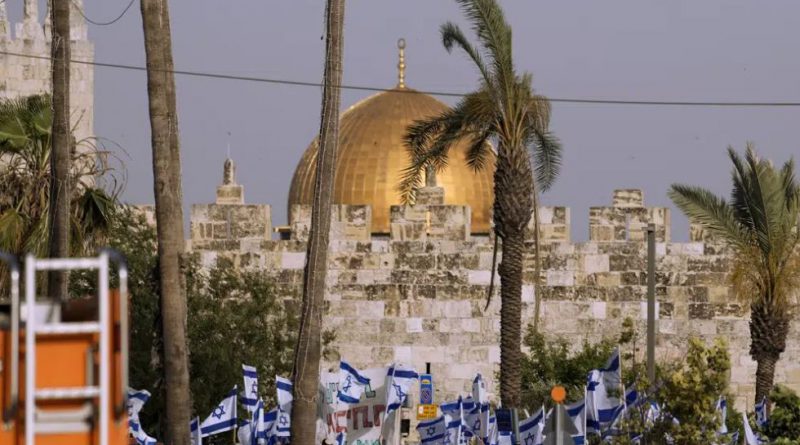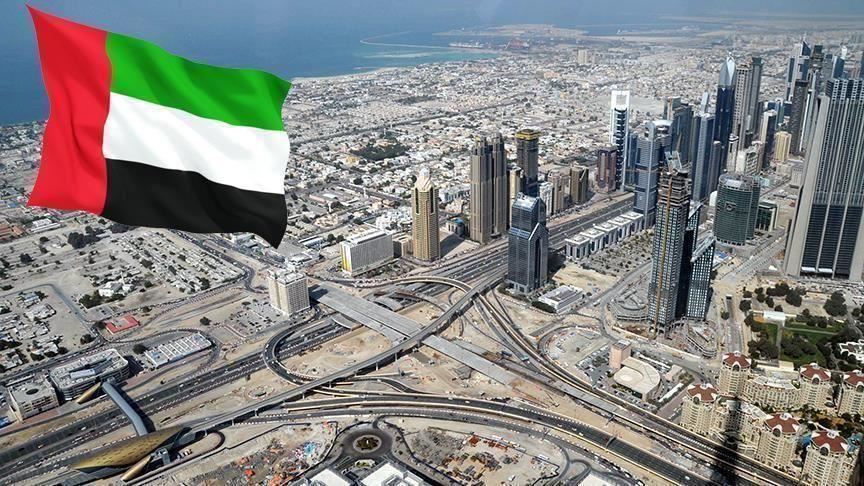Israel deploys heavy police presence ahead of contentious Jerusalem march
Jerusalem (AP) — Israel deployed over 2,000 police on Thursday for a march by flag-waving Jewish nationalists through the main Palestinian thoroughfare in Jerusalem’s Old City, a contentious event that comes as tensions are already running high.
Authorities say the beefed up security is a determined effort to ensure the march passes without violence.
Police have decided to allow the thousands of marchers to take the traditional route through the Old City’s Damascus Gate — despite an uptick in Israeli-Palestinian violence over the past year and heavy fighting between Israel and Palestinian militants in Gaza last week.
Early Thursday, hundreds of Jews were ascending to a sensitive Jerusalem site holy to both Jews and Muslims as part of the day’s activities, visits the Palestinians view as provocative. Among them was at least one Israeli Cabinet minister from the country’s right-wing government, according to Jewish activists leading the visits.
While Israeli officials describe the march as a festive parade, it has been marred by anti-Arab racist chants and violence toward local Palestinians by some of the marchers. Two years ago, it helped spark an 11-day war between Israel and Palestinian militants in Gaza, and the Hamas militant group has urged Palestinians to confront the parade this year.
Chief Supt. Yoram Segal, a senior Jerusalem police official, told reporters Wednesday that authorities were determined to prevent violence this time around.
He said some 2,500 officers were being deployed throughout the area, both to ensure safety and to react quickly toward any potential violence.
“We are going to deal harshly with anyone who tries to disturb the peace,” he said. He said past troubles were caused by a tiny minority of people, but said there there would be no tolerance for incitement or violence that could “endanger the people that are along the route or living along the route.”
Segal said police have been working “hand in hand” with Jewish and Palestinian community leaders to keep things peaceful. He also confirmed that there had been a number of pre-emptive arrests of people who were believed to be planning violent disruptions. He declined to elaborate.
The march marks “Jerusalem Day,” which celebrates Israel’s capture of east Jerusalem in the 1967 Mideast war. Israel considers all of Jerusalem to be its eternal capital, but its annexation of the eastern sector, home to the city’s most important holy sites, is not internationally recognized. The Palestinians claim east Jerusalem as capital of their future state.
Each year, thousands of Israeli nationalists participate in the march, waving blue and white Israeli flags and singing songs. But in some cases, protesters chant anti-Arab slogans as they pass by Palestinian onlookers and businesses.
Israel’s national security minister, far-right politician Itamar Ben-Gvir, has joined the march in past years. It was not known whether he would join this year, his first as a Cabinet minister.
On Wednesday, Gaza’s ruling Hamas militant group called on Palestinians to oppose the parade.
“We ask the people of Jerusalem to mobilize the masses to confront the march of the flags in Jerusalem tomorrow,” said Mushir al-Masri, a Hamas official in Gaza.
Hamas urged Palestinians in the occupied West Bank and inside Israel to “clash with the occupation.” It also said it would hold a demonstration, with people waving Palestinian flags along Gaza’s heavily fortified frontier with Israel.
In a test ahead of the parade, about 300 Jews were visiting Jerusalem’s most sensitive holy site early Thursday, according to Beyadenu, an activist group that promotes Jewish visits to the site. Police were seen escorting groups of Jewish visitors walking through the compound and more lawmakers were expected to arrive later.
The hilltop compound is known to Jews as the Temple Mount, home to the ancient Jewish Temples, and is the holiest site in Judaism. Palestinians revere it as the Noble Sanctuary, and today it is home to the Al-Aqsa Mosque, the third-holiest site in Islam.
Under longstanding agreements, Jews are permitted to visit the site but not pray there. But an increase in such visits, along with scenes of some Jews quietly praying, have raised concerns among Palestinians that Israel is trying to alter the status quo — a charge Israel denies.
The competing claims to the site lie at the heart of the Israeli-Palestinian conflict and often spill over into violence, including the 2021 war between Israel and Hamas.
The parade comes as fighting in the occupied West Bank and east Jerusalem is at its highest level in two decades. It also comes just days after a cease-fire took effect ending five days of heavy fighting between Israel and the Islamic Jihad militant group in Gaza.
Hamas stayed on the sidelines during the fighting, and Israel avoided attacking the group in an effort by both sides to contain the violence.
But if unrest erupts in Jerusalem, Hamas could enter the fray. Two years ago, weeks of unrest in Jerusalem erupted into the 11-day war during the parade.
“The resistance is ready to protect Al-Aqsa Mosque and prevent the Judaization of Jerusalem,” al-Masri said.



